New ASPCA Grant Opportunity Aligns and Supports
GFAS’s Position on Equine Acquisition
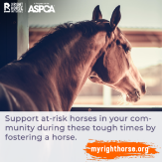 GFAS was excited to learn of a new grant opportunity for equine welfare organizations, that perfectly aligns with and supports GFAS’s animal acquisition policy. GFAS has long held the position that a true nonprofit sanctuary or rescue center acquires animals in need of care, through many avenues of intake, but does not acquire animals through purchase or commercial trade. While those in the animal rescue and welfare field may have the best intentions saving the lives of individual animals, this strategy can sometimes result in more harm than good. Purchasing animals can create a vicious cycle: each animal purchased provides an injection of funds and continued motivation for the broker. When you rescue an animal by purchase, you are essentially using donor funds to pay for this animal’s replacement and line the pockets of the broker. Learn more about this GFAS position statement at; GFAS-Position-Statement-Acquisition.pdf (sanctuaryfederation.org)
GFAS was excited to learn of a new grant opportunity for equine welfare organizations, that perfectly aligns with and supports GFAS’s animal acquisition policy. GFAS has long held the position that a true nonprofit sanctuary or rescue center acquires animals in need of care, through many avenues of intake, but does not acquire animals through purchase or commercial trade. While those in the animal rescue and welfare field may have the best intentions saving the lives of individual animals, this strategy can sometimes result in more harm than good. Purchasing animals can create a vicious cycle: each animal purchased provides an injection of funds and continued motivation for the broker. When you rescue an animal by purchase, you are essentially using donor funds to pay for this animal’s replacement and line the pockets of the broker. Learn more about this GFAS position statement at; GFAS-Position-Statement-Acquisition.pdf (sanctuaryfederation.org)
The Right Horse Initiative, a program of ASPCA, is soliciting proposals now and until April 15th which will facilitate the direct intake of at-risk or in-need equines to rescues and sanctuaries, diverting them from low-end auctions where they would need to be purchased to avoid the slaughter pipeline. More innovative community safety net programs are needed which can keep animals out of the horror of the auction/kill pen environment. To quote the RFP announcement, “This grant opportunity seeks to go upstream to find new and sustainable ways to support horses before they fall into harm’s way and bring new horses into your organization’s care and adopters’ homes.”
This grant opportunity is focused not only on identifying the population of equines that are at-risk, but also on eliminating the barriers that prevent equine owners from reaching out to organizations for assistance.
For more information, visit; Relinquishers Welcome | ASPCApro
GFAS Sanctuaries Weather the Storm
We watched closely as many GFAS sanctuaries worked tirelessly to protect and care for their animals during the recent snowstorm and extended power outage event in Texas. We applaud your preparation, dedication and perseverance in the face of harsh conditions! Unfortunately, the current climate crisis means that unusual weather events and conditions will continue to challenge rescue and sanctuary groups for the foreseeable future.
It’s never too early to update your disaster response plans and prepare your facility for weather related disaster events that are expected to occur with more frequency. A few things to consider when reviewing emergency preparations:
Back-up power: do you have enough generators to supply power to the most essential areas in a crisis? How much fuel do you need to run your generators for a prolonged time? Be sure to schedule regular maintenance and testing. Consider storing extra propane tanks and canisters.
Overnight sleeping accommodations: in the event personnel are unable to come and go from your facility are there overnight sleeping accommodations onsite that can be arranged?
Budget for emergency overtime pay: be prepared to expend significant funds in overtime pay for staff working extended hours. Cash reserves are used up quickly in emergency situations.
Network resources: cultivate your network of local animal care groups and rescue networks that may be able to provide temporary shelter or extra volunteers in an emergency. Know your resources in advance.
Join GFAS at the Asia for Animals virtual conference!
This year, the Asia for Animals Coalition’s conference is going virtual! The conference, to be held on April 24 and 25, has a theme of “For a Better Tomorrow, Together.” AFA conferences represent the largest gathering of animal welfare organizations in Asia, to share information and strategies to improve the lives for wildlife, farmed animals, and companion animals.
Jackie Bennett, GFAS Program Director for Africa and Asia, will be presenting on the topic of animal tourism during the second day of the conference, and GFAS will be a conference exhibitor as well, with a virtual “booth” that attendees can visit for more information and to chat with us.
To learn more about the conference and to register, you can visit: https://www.asiaforanimals.com/conference-2021. We hope to “see” some of you there!
The Ethics & Efficacy of Sanctuaries
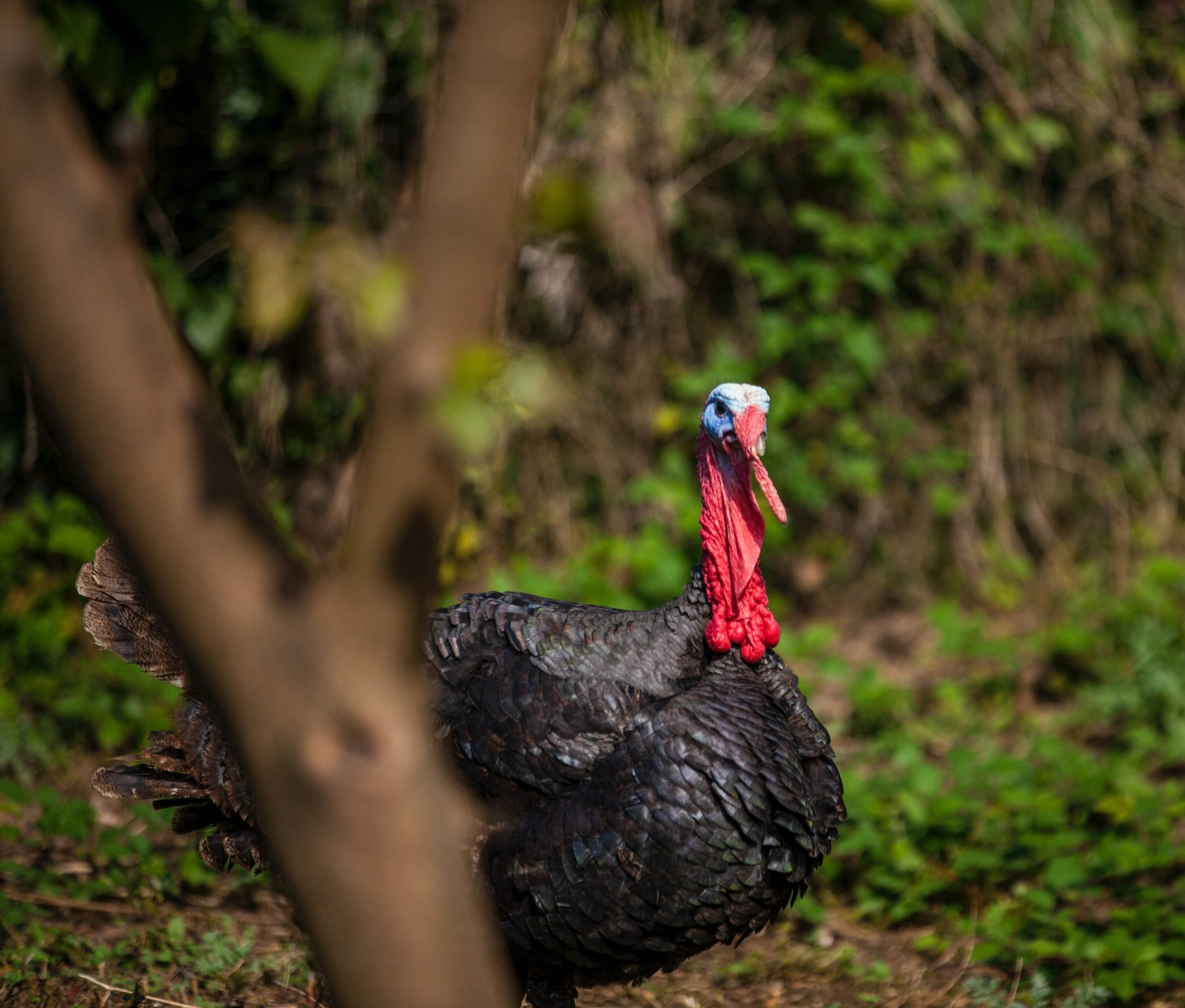 At GFAS, helping sanctuaries help animals means championing the sanctuary movement. Making sure that stakeholders know the power and value of true sanctuary. Making sure those who start, run, and work at sanctuaries are empowered and supported to be their best. Amplifying the voices of those on the ground as they speak up on behalf of their residents and their work, as they tell their stories.
At GFAS, helping sanctuaries help animals means championing the sanctuary movement. Making sure that stakeholders know the power and value of true sanctuary. Making sure those who start, run, and work at sanctuaries are empowered and supported to be their best. Amplifying the voices of those on the ground as they speak up on behalf of their residents and their work, as they tell their stories.
This month, few voices rang out as clear and true as Rachel McCrystal’s, Executive Director of Accredited Woodstock Farm Sanctuary in NY, as she spoke about The Ethics and Efficacy of Sanctuaries on The Bearded Vegans Podcast. We were cheering from our seats as we listened to her eloquently expound about the power of sanctuary work. Her clear-eyed, straight-talk approach on why sanctuaries are indeed not only effective, but also inclusive and ethically progressive, belied a sophisticated understanding of the animal protection movement and the indispensable role of sanctuaries.
She adeptly argued that strategic, targeted storytelling is one of the greatest tools sanctuaries harness to advocate on behalf of animals, whether in person or online. But they also provide a safe space that allows the animals to do the talking themselves and win hearts and minds (as they so often do). Perhaps our favorite quote was this about Beatrice, an 11 year old turkey resident at Woodstock:
We have one turkey named Beatrice at the sanctuary who is over 10, and has made so many people stop eating turkey. We’re not talking about hundreds, we’re talking about thousands of people. And so if you just look at effectiveness, Beatrice is a very effective advocate and she alone has saved so many other turkeys.
Tune in at this link to hear McCrystal’s dynamic wisdom on everything from sanctuary outreach strategy, sexism and speciesism in advocacy spheres, and how Woodstock and other farm sanctuaries center their residents’ care while packing an advocacy punch. We guarantee it’s worth the listen.
New IUCN Guidelines: The Potential Harm of “Selfies” and Other Images of Non-Human Primates
Some may think that photos of humans with young wildlife are harmless, but in fact they can have a harmful impact on animal welfare and perpetuate the illegal wildlife trade. In January of this year, the International Union for Conservation of Nature (IUCN) Primate Specialist Group published its “Best Practice Guidelines for Responsible Images of Non-Human Primates.” Citing to numerous reference sources, the authors explained the truth about animal “selfies.” For example, adult animals are often killed to obtain their young for photo opportunities and other types of exploitation, and the young may themselves be disposed of once they grow too large to be handled.
These kinds of activities have an impact beyond the particular animal in the photo: photos of people holding primates can give a “false impression that touching primates is not physically dangerous, poses no risk to health of human or primate and that primates make appropriate pets.” This holds true not just for photos with the public but also for photos of sanctuary staff holding young animals. The authors call on all in the animal welfare and conservation communities to be mindful of the possible consequences of publishing a photo that shows caregivers or others in close contact with primates.
These concerns echo those in GFAS’ own position statement on public tours and visitation. Under GFAS standards, sanctuary tours may be acceptable if they are guided, educational in nature, and conducted in a manner that promotes animal welfare and safety. We explain in our position statement that “pay to play” activity such as petting tiger cubs, taking selfies, or other opportunities for direct contact with wildlife is never in the animals’ best interests. The GFAS position statement also emphasizes that sanctuaries should take steps to ensure that wildlife is not seen as tractable – in other words, that wild animals are wild and should not be pets. This applies not only to in-person visitor experiences but also to images published on a sanctuary’s website or social media.
GFAS sanctuaries are not prohibited from offering public visitation or displaying images of the animals in their care, but doing so in an appropriate context will send the right message to the public and demonstrate what is in the best interests of animal welfare.
You can read the new IUCN Guidelines here, and GFAS’ Position Statement on Public Tours and Visitation here.
Registration is Open for the Forever Foundation
Equine Training Program
 Equine rescue organizations across the United States are encouraged to register now to participate in a video-based learning program and hands-on training, focused on safely and successfully helping equines prepare for adoption. This is a scholarship program provided by HSUS at no cost to equine rescue staff and volunteers. The only cost would be travel expenses for those who choose to come to the live clinic at Doris Day Equine Center. Although rescue organizations can register at any time, if you want to participate in the whole program and be eligible for the Adoption Showcase at the end of the year, you should apply before the end of March.
Equine rescue organizations across the United States are encouraged to register now to participate in a video-based learning program and hands-on training, focused on safely and successfully helping equines prepare for adoption. This is a scholarship program provided by HSUS at no cost to equine rescue staff and volunteers. The only cost would be travel expenses for those who choose to come to the live clinic at Doris Day Equine Center. Although rescue organizations can register at any time, if you want to participate in the whole program and be eligible for the Adoption Showcase at the end of the year, you should apply before the end of March.
This important education program will provide unique training challenges designed to help advance, engage, motivate, and reward you and your team as they work to successfully prepare equines for adoption. Included in this program will be:
Volunteer Training and Tracking
Equine Training and Tracking
Training Challenges & Awards
Hands-On Training Clinic
Director Reporting Features
Adopter Education Resources
To learn more and to register, visit:
Forever Foundation 2021 Adoption Challenge & Showcase – HSUS Forever Foundation
Featured Organizations
Crosswinds Equine Rescue in Illinois
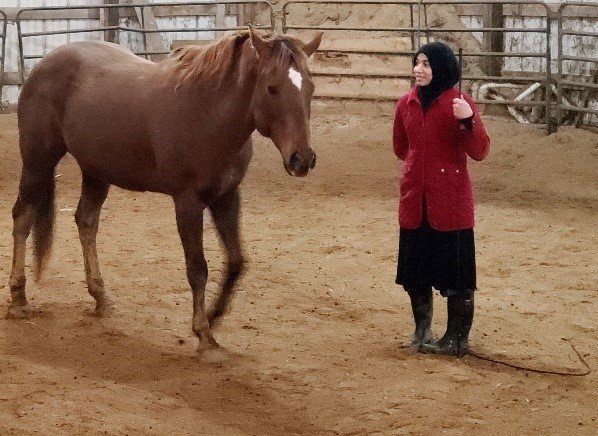 President, Mike Cross did not grow up with horses but gradually became involved with his wife’s horse rescue organization starting with doing farm chores. He was hooked! Since 2003, Crosswinds Equine Rescue has focused on early intervention, helping equine owners in difficult situations help their horses. As space and funds allow, CWER will admit equines for rehabilitating and retraining directly from owners but also assists owners with healthy horses to find appropriate placement options.
President, Mike Cross did not grow up with horses but gradually became involved with his wife’s horse rescue organization starting with doing farm chores. He was hooked! Since 2003, Crosswinds Equine Rescue has focused on early intervention, helping equine owners in difficult situations help their horses. As space and funds allow, CWER will admit equines for rehabilitating and retraining directly from owners but also assists owners with healthy horses to find appropriate placement options.
Educating horse owners is an important part of their mission. Before the COVID pandemic, CWER regularly gave presentations at several public events regarding equine care, and they hope to do so again in the near future. Their herd of 15 equines have 37 acres of rural Illinois to graze and roam and CWER rehomes close to 10 horses a year. For more information, visit; Crosswinds Equine Rescue – Horse Rescue (cwer.org)
Safe Haven Farm Sanctuary
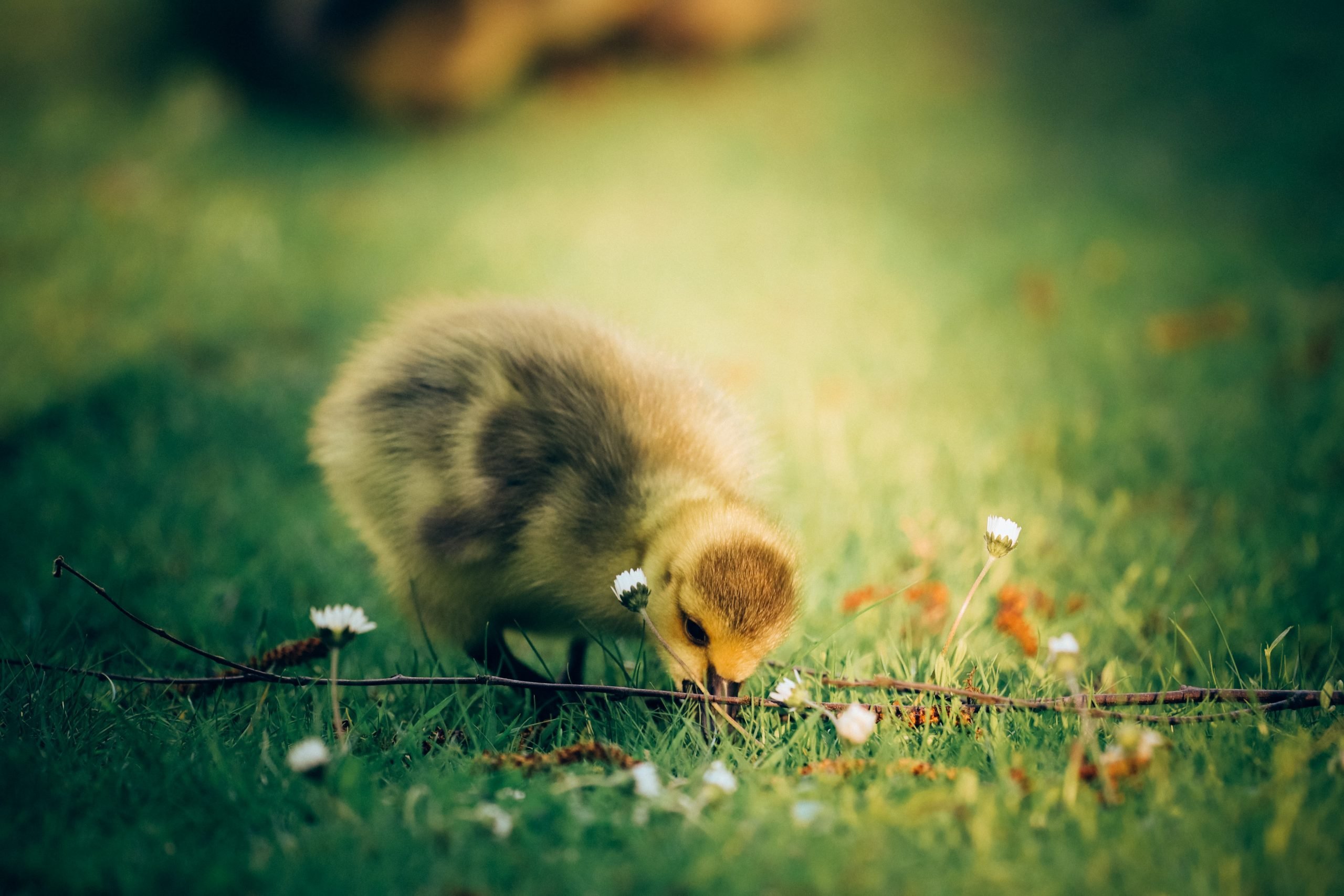 In a recent collaboration with advocacy group United Poultry Concerns, Verified Safe Haven Farm Sanctuary is confronting the latest commercial chain exploiting animals: Tractor Supply Company. Each year, Tractor Supply sells chicks and ducklings to those looking for a novelty at Easter. But Safe Haven co-founder Bill Crain dreads this every year:
In a recent collaboration with advocacy group United Poultry Concerns, Verified Safe Haven Farm Sanctuary is confronting the latest commercial chain exploiting animals: Tractor Supply Company. Each year, Tractor Supply sells chicks and ducklings to those looking for a novelty at Easter. But Safe Haven co-founder Bill Crain dreads this every year:
By March stores will be selling ducklings. Last spring, our sanctuary received an average of two or three calls a day from people who purchased ducklings but discovered they required more care than anticipated. The problem extends beyond ducks and includes chickens. Tractor Supply and others like them sell chicks in batches that include roosters most people can’t keep.
With United Poultry Concerns, the sanctuary has started a petition on Change.org which has already gathered over 5,000 signatures in support. They have also invited other GFAS farm program members to sign and spread the word. Other members, like Laurie Jackson, Executive Director of Accredited Happy Trails Farm Animal Sanctuary, have had similar experiences: “I cannot thank them enough for taking the initiative to get this started. It is a topic we complain about every year, twice a year when TSC decides to bring in the next batch. So thank you for bringing it to our attention.”
We applaud Bill and Ellen Crain of Safe Haven Farm Sanctuary for using their platform and expertise to advocate on behalf of animals and we encourage anyone reading to sign the petition HERE.
Wolf Haven: Saving Endangered Wildlife!
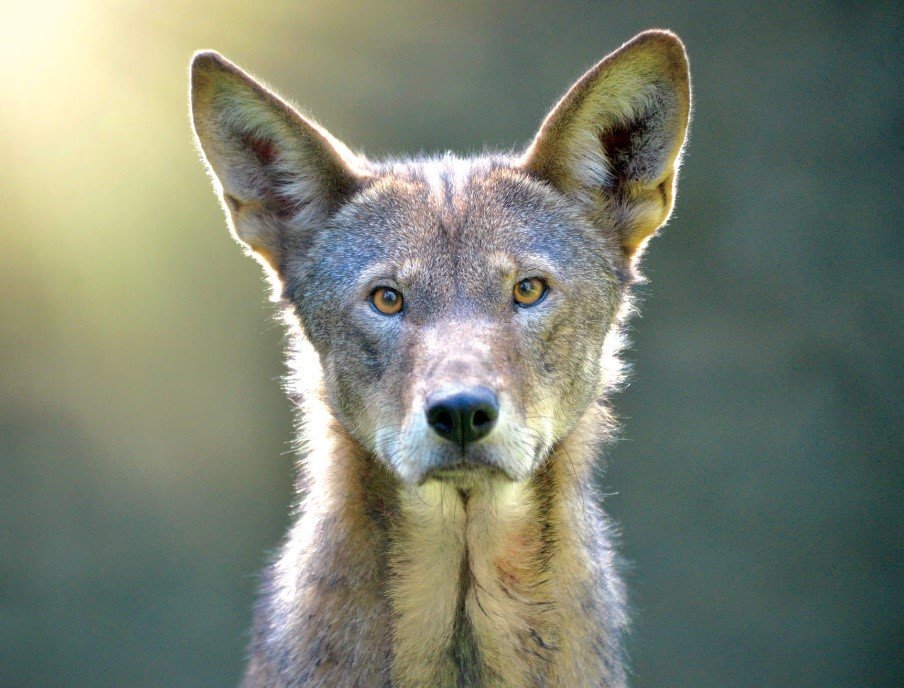 GFAS Accredited, Wolf Haven International in Tenino, Washington has been rescuing and providing sanctuary for displaced, captive-born wolves since 1982. Wolf Haven is a staunch advocate for wild wolves and promotes wolf restoration in their historical ranges.
GFAS Accredited, Wolf Haven International in Tenino, Washington has been rescuing and providing sanctuary for displaced, captive-born wolves since 1982. Wolf Haven is a staunch advocate for wild wolves and promotes wolf restoration in their historical ranges.
GFAS Standards allow breeding only when the program is part of a bona fide breeding plan for endangered species. Wolf Haven is a partner in the Species Survival Plan (SSP) to restore dwindling populations of the Mexican gray wolf and red wolf. An SSP is a cooperative effort between the U.S. Fish and Wildlife Service and the Association of Zoos and Aquariums (AZA), as well as non-AZA participants (like Wolf Haven). The program is designed to oversee the population management of an endangered species in captivity and to enhance their conservation in the wild.
Mexican wolves were once widespread from Mexico to Colorado, but only about 160 individuals remain around the Arizona-New Mexico border. Less than 10 red wolves remain in their native habitat in North Carolina. Wolf Haven has 21 Mexican wolves and 13 red wolves currently in residence that will help to ensure the continued presence of these wolves in their native ranges. Wolf Haven is temporarily closed to visitors due to Covid-19, but offers virtual visits, as well as a variety of online educational programs.
To learn more please visit: www.wolfhaven.org
GFAS Certifications and Renewals
Over the past month, GFAS has certified two new organizations, and renewed three organizations.
New Certification
Tamerlaine Sanctuary & Preserve, New Jersey
Win Place Home, Inc., California
Renewals
Gentle Giants Draft Horse Rescue, Maryland
Hanaeleh Horse Rescue, California
Maine State Society for the Protection of Animals, Maine
